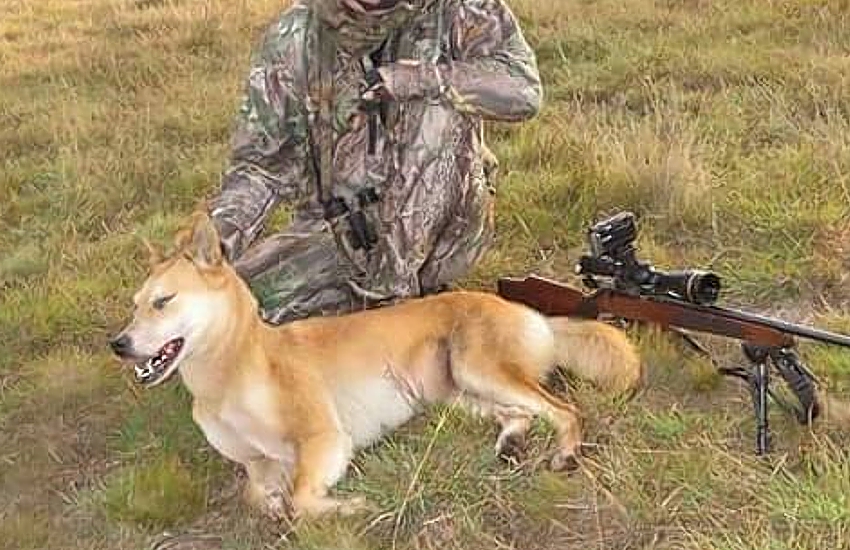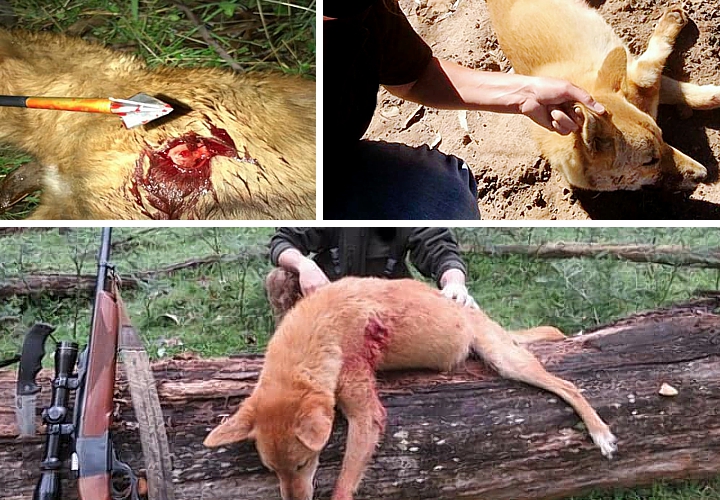
Presently, recreational hunters are permitted to kill ecologically important dingo dominant hybrids (deemed ‘wild dogs’) over large areas of public estate beyond the specified areas of the state where the bounty applies. As a result, hunters can legally kill so-called ‘wild dogs’ (in reality including pure dingoes listed as threatened wildlife) in areas where the bounty does not apply, but they can then nevertheless easily and fraudulently present such scalps for bounty collection. The streamlining of the bounty arrangements will simply further facilitate such abuse.

The images below (and at top) are of dingoes killed in Victoria by hunters. Bear in mind that dingoes are listed as a threatened native species in Victoria. The contradiction is shameful and incompetent.

The Ministers for the Environment and Agriculture can no longer claim ignorance on this issue.
………………………………………..
AFCAD is an incorporated association registered in the state of Victoria. Its purposes are the ‘Preservation and Conservation of Australian Dingoes and its habitat and ecosystems’ and its objectives include:
‘Encourage and facilitate legislative reform to ensure the protection and survival of the dingo in the wild’; ‘Encourage and facilitate government policy change to ensure the protection and survival of the dingo in the wild’; and
‘Inform and educate the public and government about the cultural, ecological and historical significance of the dingo and its conservation’